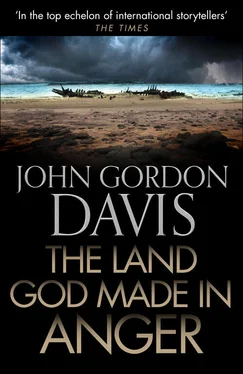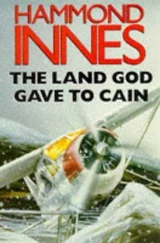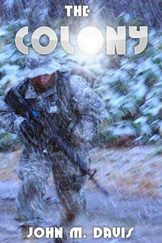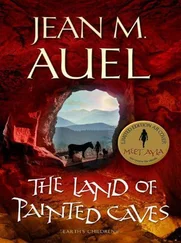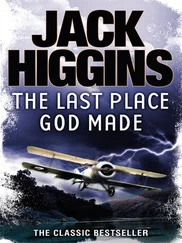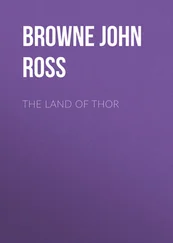He staggered, blood-spattered, and stared at his victim. The man was a mass of blood, welling from his chest. Then he tried to get up. He tried to roll over and heave himself up onto his hands and knees, and the first man gave a cry and lurched back at him. The second man tried to raise his arm to defend himself, but he collapsed. The first man dropped to his knees beside him, and sawed the blade across the man’s gullet.
Then he clambered to his feet, red sand sticking to him. He looked at his victim; then he turned and picked up his package. He looked for the gun, picked it up, then wiped the sand off it. He sat down with a thump, chest heaving, getting his breath back; then he put his hand in his pocket and pulled out an oilcloth bag. He cut it open with trembling fingers, and pulled out a cardboard box. It contained bullets. He opened the magazine of the gun. He pulled out the shells, and reloaded. He scooped up the empty shells, and threw them into the sea. Then he turned to his package.
It was also an oilcloth bag. He cut the stitching. Inside were two smaller bags. He stood up unsteadily, and buried one in a trouser pocket. In his other pocket was a bulky leather wallet. He pulled it out and put the other bag in its place. He then tried to stuff the wallet into the pocket beside the bag. It was too much, so he stuffed it into his breast pocket. Then he turned back to the corpse.
He took hold of the dead man’s ankles and dragged him above the high-water line: then he began to scoop out a shallow grave.
He rolled the body into it. He scooped the sand back over it, then clambered to his feet. His mouth was parched. He walked unsteadily back to the sea. He washed the bloody sand off his arms and face. Then he started plodding down the burning shore. He only knew that he had to head south. That was where civilization lay. How far, he did not know.
He only got about a mile before he had to rest. It was blazing hot and he was frantic with thirst. There was a promontory of rocks. He clambered over them. On the other side, he crept into the shade of a big boulder, and sat down, the gun dangling between his knees. That is how he was when the two Damara strandlopers came creeping over the rocks, following him.
The white man jerked and swung the gun on them. The two Damaras stopped, frightened.
The white man scrambled to his feet, the gun trained on them shakily. Then both Damaras turned to flee, and in a flash the man fired. Both men froze, cowered, terrified. The white man stood there, wild-eyed; then he motioned with the gun, ordering them to drop their weapons.
The Damaras laid down their bows and their slingbags. The terrifying white man held out his trembling hand. ‘ Wasser! ’ He made a drinking motion.
Carefully one Damara opened his bag. Inside was an assortment of old bottles with wooden stoppers. He lifted one out.
The white man snatched it. He drank feverishly, his eyes never leaving them. He swallowed and swallowed, and the two men watched him fearfully. He drank the bottle dry, then threw it down. He held out his hand for another. It was given to him. He drank half of it. Then he said:
‘Swakopmund!’
The Damaras understood. Neither of them had ever been to the white man’s town faraway to the south, but they had heard about the extraordinary place at the mouth of the river which is almost always dry. The Damara who was called Jakob pointed down the hostile coast.
The white man picked up their bows and motioned them to start leading the way.
In less than an hour he knew it was hopeless: he had to struggle to keep up, and tonight, when he fell asleep, the two men would disappear. He could not afford to leave witnesses, and when the sun began to get low he decided to kill them so that he could throw himself down and sleep. First, however, he wanted them to make a fire.
There was plenty of driftwood. He called a halt, and motioned them to put their slingbags at his feet, before indicating that he wanted a fire. The Damaras set to work. The white man collapsed in the sand. He opened one of the slingbags and found dried meat, which he began to chew ravenously.
The two Damaras made the fire. Jakob took a straight stick, the size of a pencil, out of his bag, and a piece of flat wood. He put a pinch of sand on the very edge of the wood, and some kindling underneath. Then, holding the straight stick vertical, he rubbed it between his palms onto the sandy wood, very hard, until the friction caused smoke. A tiny glow fell off the wood into the kindling below. The other Damara, called Petrus, blew on it, whilst Jakob ground the stick, and the kindling blossomed into a little flame. They scuttled about on their haunches, getting more kindling, crouching to blow. Then Petrus suddenly gave a gasp and pointed down the beach; the white man turned to look, and Jakob hit him.
Jakob seized a piece of jagged wood and swung it with all his might and the white man flung up an arm. The wood crashed against his wrist and gashed it to the bone, and he sprawled. His wallet jerked out of his pocket and the gun went flying. Jakob bounded and swiped the man’s mouth, and his lips split and his front teeth smashed off at the roots. Jakob raised his club again and the man cried out, trying to cover his head. Jakob threw down the stick and snatched up his slingbag, and Petrus snatched up the bows and the man’s wallet. They ran away into the dunes, leaving one slingbag behind in their panic.
A thousand miles down the Skeleton Coast is the Cape of Good Hope, ‘The Tavern of the Seas’ on the route from Europe to the East, with its oaks and its vineyards and its fruit – the Fairest Cape of All, it is said. Further to the east are the mighty Tsitsikama forests, and then come the rolling hills of the Ciskei and the Transkei, the homelands of the Xhosa people beneath the mountain stronghold of Lesotho, the kingdom of the Basuto people; then come the lush green hills of Natal where the sugar cane grows, the home of the Zulu people, who were a mighty warrior nation. Then across the magnificent towering Drakensberg mountains lie the farmlands of the Orange Free State, the vast highveld and the bushveld of the Transvaal, the land of rich goldfields, the strongholds of the hard people of Dutch descent, who are called Afrikaners. They live surrounded by many tribes: the Swazis in their mountain kingdom, the Tswanas, the Vendas, the Matabele. To the west of this country is the Kalahari desert and beyond that lies the vast desert country called South West Africa-Namibia, with its Skeleton Coast, where live the Ovambo people, and the Himba and the Herero, the Damaras and the Bushmen, to name but some, as well as Germans and Afrikaners. There are many different countries in this dramatic land of southern Africa, with many different climates, and many different peoples, and many languages and many different customs, but the most dramatic country of all is the one known as The Land God Made in Anger, the desert land called South West Africa-Namibia, or more commonly simply Namibia, where this story began.
Legally, Namibia is not part of the Republic of South Africa. It is a former German colony which was handed to South Africa by the League of Nations at the end of the First World War under a mandate to govern in the best interests of the natives until such time as it was appropriate to grant the colony independence. Halfway up is the little enclave of Walvis Bay, the only deep-water harbour in the whole vast coast, which is legally part of South Africa. It was to this unusual part of the world that James McQuade came back forty years after Jakob and Petrus saw the two men erupt out of the sea and fight to the death on the burning shore.
James van Niekerk McQuade once served twelve months in prison for contravening the Immorality Act, but do not be too alarmed by that because it happened like this: in those days, when he was starting a trawler-fishing company in Cape Town, he sailed to the Antarctic every year on the whaling fleets to make extra money, and down at the Ice he fell madly in love with the ship’s nurse, a South African girl who happened to have some Malaysian blood. She was only one-sixteenth Malay, but that was enough to make her a Coloured under South Africa’s laws in those days. When they got back from the Ice she was pregnant and he unlawfully married her. When they were charged for breaching the racial laws, he packed her off secretly to England to have her baby. The magistrate sentenced him to twelve months imprisonment with hard labour, and he never saw his wife again. She wrote to him in prison saying that she had miscarried, that she had ruined his life and that he should forget about her. There was no address. When he came out of prison he moved his fishing company to Walvis Bay to get away from his wicked past, put a skipper in charge and hurried to England to look for his wife. After six months he had given up and emigrated to Australia to start life again, an embittered man. No way was he going to go back to goddam South Africa.
Читать дальше
